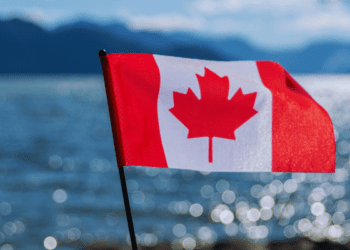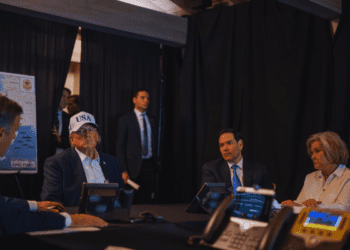Writing in the Financial Post, MLI senior fellow Philip Cross says that it’s hard to find the Conservative government’s mistrust of the federal public service unjustified when so many working and former public servants have become vocal critics. Cross writes, “What is most disturbing is the monoline of anti-government views among former senior civil servants. Critics of the government see this unanimity as an indictment of the government’s unfitness to govern. Others see substance to the Conservatives’ suspicions of the public service given the ideological partisanship revealed by former public servants and union leaders”. Cross says that public servants’ duty is to implement the government’s agenda, and “If a public servant really believes the policies being implemented are against the public interest, that person should resign in protest”.
Philip Cross, February 11, 2014
Since its election in 2006, critics have repeatedly alleged the Conservative government harbours an unjustified distrust of the federal public service. Subsequently, a steady drumbeat of former senior mandarins have publicly criticized the Harper government policies, thereby confirming the very suspicions that critics have berated the government for holding.
At a recent conference, Mary Campbell, a retired Director General from Public Safety Canada, slammed the Harper government’s agenda, citing “the deeply embedded nastiness” of its attitude to corrections and criminal justice. Paul Boothe, upon vacating his post of deputy minister of environment, lambasted the government for “betting the farm” on the volatile resource sector at the expense of manufacturing, even as manufacturing sales are poised to hit a record high in 2014. Two former ambassadors to the UN condemned the government’s emphatic support for Israel.
It is not surprising that former bureaucrats from Public Safety, Environment or Foreign Affairs speak out against the government’s policies – some say that these departments should be formally inducted into the Official Opposition. Indeed, a national magazine anointed the gaggle of former civil servants opposed to the Harper government “the unofficial opposition.
But even members of the government’s economic team turned out to be opposition wolves hiding under their civil servant clothing. They include Mark Carney, who openly flirted with running for the Liberal leadership while Governor of the Bank of Canada. Alex Himelfarb, head of the civil service early in the Harper government, just released a book Tax is Not a Four-Letter Word that is clearly meant to repudiate the government’s fiscal policy framework. Kevin Page, a former senior economist for The Privy Council, parlayed his acrimonious tenure at the Parliamentary Budget Office into becoming a de facto shadow Treasury Board critic in a special post created just for him at the University of Ottawa.
Public service unions are united in their opposition to this government, symbolized by their “Harper Hates Me” T-shirt campaign, even if their rank and file help elect some Conservative MPs. This government is not immune to attack from the civil service even within the hallowed halls of Parliament – remember the assault on public service impartiality from a House of Commons page’s adolescent stunt of displaying a Stop Harper sign during a Speech from the Throne?
What is most disturbing is the monoline of anti-government views among former senior civil servants. Critics of the government see this unanimity as an indictment of the government’s unfitness to govern. Others see substance to the Conservatives suspicions of the public service given the ideological partisanship revealed by former public servants and union leaders. This unease or even outright opposition to the government’s agenda helps explain why it distrusts large swathes of the civil service and clamped down on employees freelancing their communications with the media.
It is understandable many departments, apart from a few like Finance, have an anti-conservative bias. Most professionals enter government to have an impact on society, implying an interventionist bias. Given this predilection, it’s not surprising this government increasingly looks to academia and think tanks for policy advice, asking the civil service more to implement policy efficiently. The reluctance of the civil service to accept this diminished role was outlined by Donald Savoie, Canada’s leading professor of the public service, in his recent book Whatever Happened to the Music Teacher?
The irony is that the federal civil service believes in the benefits of diversity in the workplace – it is a leader in promoting women into its senior ranks, and quickly adopted quotas for visible minorities, aboriginals and the disabled. All these may be laudable. However, the belief in diversity rarely extends to political ideology. All of the former civil servants cited above toe an anti-conservative line on crime, the environment and the economy. Canadians intuitively understand that this monolithic opposition to its government’s agenda is contrary to the views they expressed in the last three elections and thus is anti-democratic, while undermining faith in the objectivity of the civil service.
The readiness of retired senior civil servants to decry government polices they helped implement demonstrates a lack of courage and principles. If a public servant really believes the policies being implemented are against the public interest, that person should resign in protest, as former Chief Statistician Munir Sheikh did at Statistics Canada. People who quietly wait for their retirement fund to ripen before speaking out should be ignored.
The primary duty of the civil service is to implement the government’s agenda and serve Canadians in an efficient and non-partisan manner. Instead, some members of the bureaucracy seem more interested in pursuing their own interests and undermining the agenda of an elected government. These public servants unwittingly confirm the ideological bias alleged by some Conservatives. One of the never-discussed legacies of this government is how it highlighted — unintentionally — the importance of neutrality and non-partisanship in the civil service. Partisanship should be left to the increasingly fractious clash in Parliament.
Philip Cross is the former Chief Economic Analyst at Statistics Canada




